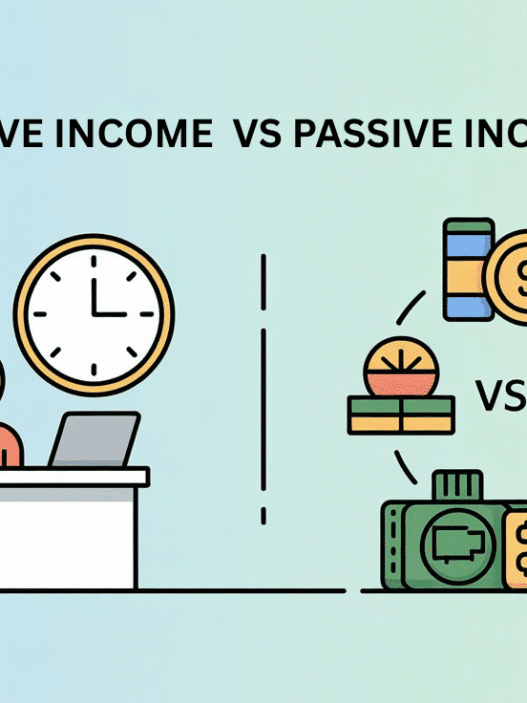Introduction
Taxes are something most people cannot escape. From the moment you earn your first paycheck, governments step in to take a share of your income. For the average worker, this system feels unavoidable, what you earn is what gets taxed, and you simply accept it. But for the world’s wealthiest individuals and families, the story looks very different.
The rich have built entire systems designed to minimize, defer, or completely eliminate their tax burdens. They do this not by breaking the law, but by playing the game differently, taking advantage of tax havens, loopholes, clever financial structures, and international laws that ordinary people never use.
In this article, we’ll break down how rich people avoid taxes, explore why these systems exist, and uncover the strategies billionaires and family offices rely on to keep their wealth compounding across generations. By the end, you’ll have a clear understanding of the hidden financial world that governments tolerate, even when it seems unfair to the average taxpayer.
Why the Rich Play by Different Tax Rules
The starting point is simple: rich people don’t earn money in the same way as the average person. Most workers make money through salaries or wages, direct income that gets taxed heavily. By contrast, the wealthy generate income from investments, businesses, capital gains, dividends, and real estate. These sources are often taxed at lower rates, and in some cases, can be structured to avoid taxation altogether.
The difference lies not in working harder, but in structuring wealth smarter. While the average citizen accepts the tax code as is, the rich see the tax code as a tool, a complicated set of rules filled with exceptions and incentives. They don’t simply follow it, they optimize for it.
This is where strategies like offshore finance, tax havens, diversification, and “buy, borrow, die” come into play.
Tax Havens: Why Tiny Countries Hold Trillions

One of the most common strategies the wealthy use is taking advantage of tax havens. These are countries or territories with little or no tax on foreign income. Think of places like the Cayman Islands, Luxembourg, Bermuda, Monaco, or even states like Delaware in the U.S.
Why would a billionaire park money in a small island nation with barely any people? Because tax havens offer:
- Low or zero taxes on capital gains, corporate profits, and inheritance.
- Privacy laws that keep financial information hidden.
- Friendly regulations designed to attract wealthy individuals and global corporations.
For example, in one tiny Caribbean island, more companies are registered than actual citizens. On paper, it looks like trillions of dollars are flowing into a small office building. In reality, it’s just a financial trick: corporations and billionaires set up shell companies there to route profits through a no-tax jurisdiction.
From a legal standpoint, this isn’t tax evasion (illegal), but rather tax avoidance (legal). Governments know this happens, yet they often allow it because tax havens attract investment and maintain global financial influence.
Offshore Finance: Moving Money Without Borders
Closely tied to tax havens is the practice of offshore finance. Wealthy families and corporations don’t keep their money in one country. Instead, they diversify across multiple jurisdictions to minimize risk and reduce taxes.
This works because international tax treaties and banking rules create gaps that the rich can exploit. By structuring wealth offshore, billionaires can:
- Avoid double taxation.
- Protect wealth from political instability.
- Access lower tax rates abroad.
- Hide ownership of assets through layered corporations.
Family offices-private firms that manage the wealth of ultra-rich families, often employ entire teams of lawyers, tax specialists, and bankers just to optimize global tax positioning.
The Buy, Borrow, Die Strategy

One of the most powerful tax avoidance methods is known as Buy, Borrow, Die. Here’s how it works:
- Buy: The rich invest in appreciating assets like stocks, real estate, or businesses.
- Borrow: Instead of selling assets (which would trigger capital gains tax), they borrow against their wealth. Loans aren’t considered income, so they’re tax-free.
- Die: When they pass away, the assets transfer to heirs. Thanks to special tax laws, the gains often reset, and heirs avoid paying massive taxes on decades of growth.
This strategy allows billionaires to live lavishly, fund lifestyles, and grow wealth without paying the same level of taxes an ordinary worker would on their salary.
Family Offices: The Secret Weapon of the Ultra-Wealthy

A key player in this system is the family office, a private wealth management firm set up exclusively for a single wealthy family. Unlike financial advisors for ordinary people, family offices have only one mission: protect and grow generational wealth while minimizing taxes.
Family offices coordinate everything from:
- Tax-efficient investment strategies.
- Offshore company structures.
- Estate planning and trusts.
- Legal loopholes to protect wealth from governments.
In many cases, a billionaire’s family office has more tax expertise than an entire small country’s finance department.
Diversification Strategies: Not Just About Risk
When you hear the word diversification, most people think about spreading investments across stocks, bonds, and real estate to reduce financial risk. For the rich, diversification also means spreading assets across tax systems.
For example, a billionaire might:
- Keep real estate in London for growth.
- Store gold in Switzerland for safety.
- Register a company in Singapore for favorable taxes.
- Hold a passport from a Caribbean nation to reduce reporting requirements.
By not being tied to one government, they gain leverage. If one country raises taxes, they can simply shift assets elsewhere.
Tax Loss Harvesting: Turning Losses into Wins
Another trick the rich use is tax loss harvesting. This involves selling losing investments to offset gains from winning investments. By doing this, they reduce taxable income, even while their overall wealth keeps growing.
For example:
- If a billionaire makes $10 million in profit from one stock but loses $3 million in another, they can sell the losing stock to offset the profit.
- Instead of paying taxes on the full $10 million, they’re only taxed on $7 million.
Repeat this across dozens of investments, and the savings add up to millions, or even billions.
Loopholes: Governments Create Them, the Rich Exploit Them
It’s easy to get angry at billionaires for avoiding taxes, but the truth is governments often create these loopholes intentionally. Why? To encourage investment.
For instance:
- Real estate tax breaks encourage construction.
- Business write-offs encourage entrepreneurship.
- Lower capital gains tax rates encourage investment in companies.
The wealthy simply take these rules to the extreme. While an average investor may deduct a few thousand dollars, billionaires structure entire empires around maximizing these incentives.
Tax Avoidance vs. Tax Evasion
It’s important to distinguish between tax avoidance (legal) and tax evasion (illegal).
- Tax avoidance: Using legal methods like tax havens, deductions, and loopholes to minimize taxes.
- Tax evasion: Hiding income or falsifying records to illegally avoid taxes.
The rich don’t want the risk of breaking the law, so they stick to avoidance strategies that are perfectly legal, just inaccessible to most ordinary people.
Why Governments Tolerate the System
You might wonder: why don’t governments just shut these systems down? The answer lies in global competition.
- Countries want to attract billionaires and corporations because they bring investment and jobs.
- Tax havens gain power and influence by hosting trillions in foreign assets.
- Lobbyists for the wealthy influence tax laws to protect these advantages.
In short, the system persists because it benefits powerful groups, even when it feels unfair to ordinary taxpayers.
Conclusion

Understanding how rich people avoid taxes is about more than just curiosity. It reveals the deep divide between how wealth is treated at different levels of society. The average worker is taxed on every dollar earned, while the wealthy use strategies like tax havens, family offices, offshore finance, diversification, buy borrow die, and tax loss harvesting to minimize their obligations.
Whether or not you agree with the fairness of this system, one thing is clear: the rules of money are not the same for everyone. By learning how these strategies work, ordinary people can start thinking differently about wealth, investing, and the hidden financial world that shapes our economies.
FAQs: How Rich People Avoid Taxes
1. What is the main difference between tax avoidance and tax evasion?
Tax avoidance is legal and involves using loopholes, tax havens, and deductions, while tax evasion is illegal and involves hiding income or falsifying records.
2. Why do billionaires use tax havens?
They use tax havens to minimize or eliminate taxes on income, capital gains, and inheritance while maintaining financial privacy.
3. What is the Buy, Borrow, Die strategy?
It’s a tax strategy where the rich buy appreciating assets, borrow against them tax-free, and pass them to heirs with minimal taxes after death.
4. How do family offices help the wealthy avoid taxes?
Family offices manage wealth across jurisdictions, create tax-efficient structures, and ensure generational wealth is preserved with minimal tax liability.
5. Can ordinary people use these same strategies?
Some strategies like diversification and tax loss harvesting are accessible, but the most powerful methods, like offshore finance and family offices, require massive wealth.
Disclaimer: This article is for educational purposes only. It does not constitute financial or legal advice. Always consult a licensed professional before making financial decisions
If you enjoyed this guide and want more insights on money, investing, and building wealth, visit Forcefall.com for more in-depth articles and resources.














